✨You Can Touch the Times Square New Year's Eve Ball!
Find out how you can take home a piece of the old New Year's Eve ball!


During winter on the Upper West Side, it’s easy to walk with your back slouched, looking into the crevasses of the sidewalk. The wind comes in so strongly from the Hudson River, looking up almost hurts. However, if you wish to brave the cold, the West End Collegiate Historic District on West End Avenue between West 74th and 78th contains the earliest residences of the Upper West Side from the 1890s, and they are exquisite.
The row-houses on the West End Collegiate district were all built in the 1890s when the Upper West Side was first becoming inhabitable. At the time, these rowhoueses were along “Bloomingdale Road,” which later became Broadway. The name Bloomingdale Road is a derivative from the Dutch word “Bloemendael,” which means “valley of flowers.”
While there were some country estates along Bloomingdale road, the Upper West Side was largely considered the “wild” part of Manhattan. The first major establishments in this part of the city were mental and orphan asylums. In post-civil war New York City, development of the Upper West Side was generally slower than that of the Upper East Side.
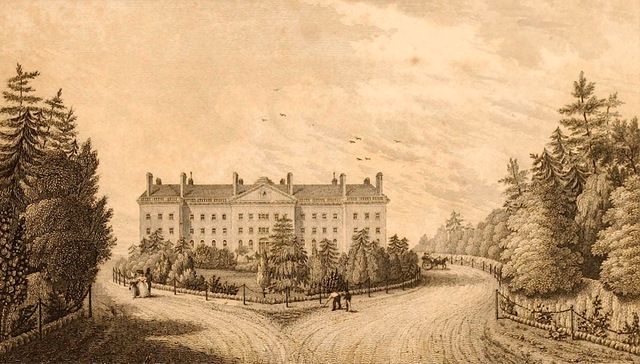
The Bloomingdale Insane Asylum, located in Morningside Heights where Columbia University, Barnard College, and the Manhattan School of Music currently exist. Buell Hall is the only remnant of the asylum. Image via Wikimedia Commons.
Here are some of the houses of the “pioneer” settlers of the Upper West:
303 West 74th street was built for Thomas A. McIntyre, the “Great Organizer” of Wall Street, architect Cass Gilbert in 1893. McIntyre was the head of his own firm, “T. A. McIntyre and Co,” and he gained clout on Wall Street through pushing the “flour trust.” However, this all came crumbling down when his firm went bankrupt and he was subsequently indicted for larceny. McIntyre passed away in 1908, but the house built in his name still remains in its original condition besides the balcony and lamps.
Another Upper West Sider who lived in the houses depicted above was George Chase of 309 West 74th street. Chase founded the New York Law School along with Theodore Dwight in 1891. Chase also served as the first Dean of the school until 1918, when the school was closed for World War I. He served as Dean until his death in January of 1924.
Next up on the housing tour is 266 West End Avenue, a Beaux-Arts outcast. This house is technically two blocks South from the district lines, but we think this house should be adopted. This icy white column is a pleasant surprise next to its concrete neighbors, built in 1896 for Julius N. Jaros, a wealthy wine importer.
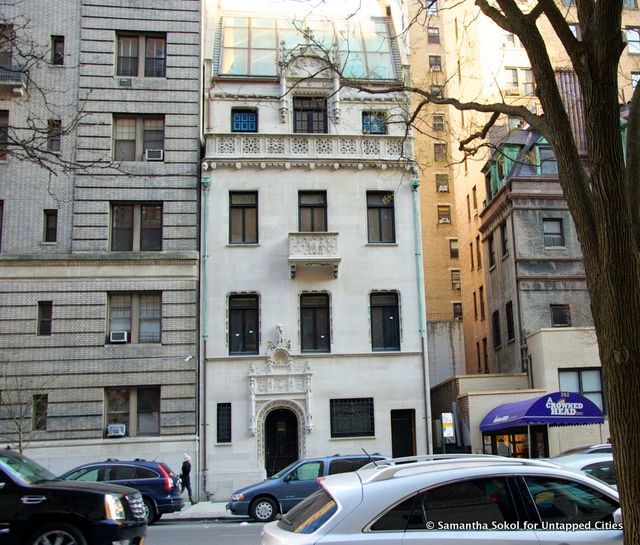
Jaros was no ordinary wine-importer, though. According to the New York Times, his wine called “Vin Mariani” was laced with cocaine! Of course, the wine was heavily endorsed by Jules Verne, Queen Victoria, Sarah Bernhardt, and Pope Leo XIII (Oh wouldn’t Dante just eat that up). This narrow palace was also home to the infamous actress Mae West in the early 1930s.
The inside looks like Versailles with French panels, ceiling and wall paintings, and carved woodwork. Check out photos of the inside here, by the Daytonian in Manhattan.
Here are more pictures of the beautiful historic district.
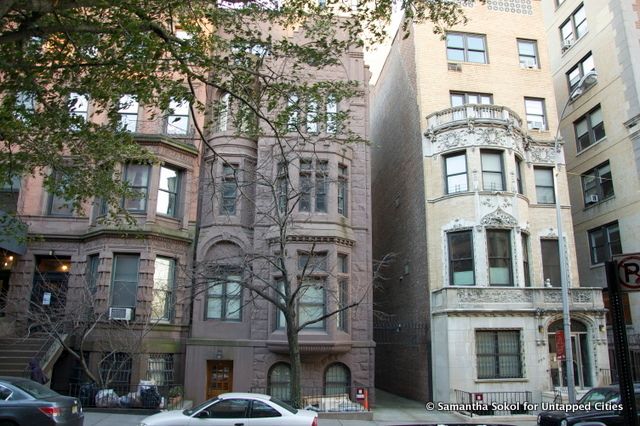
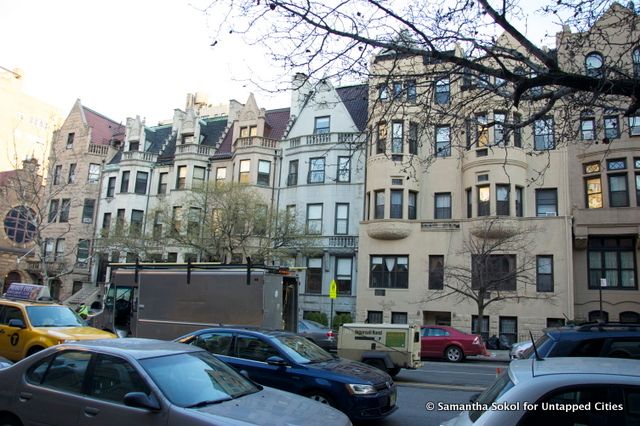
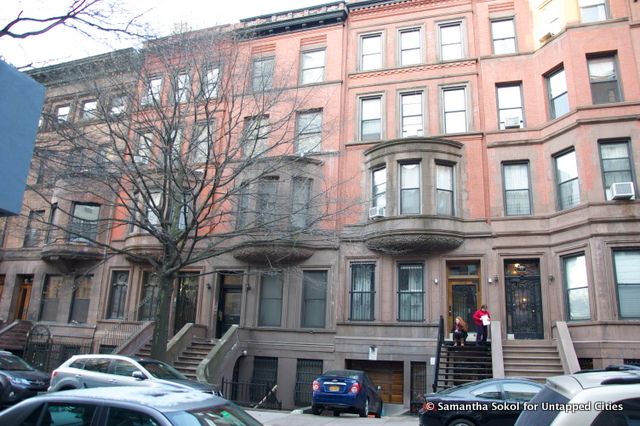
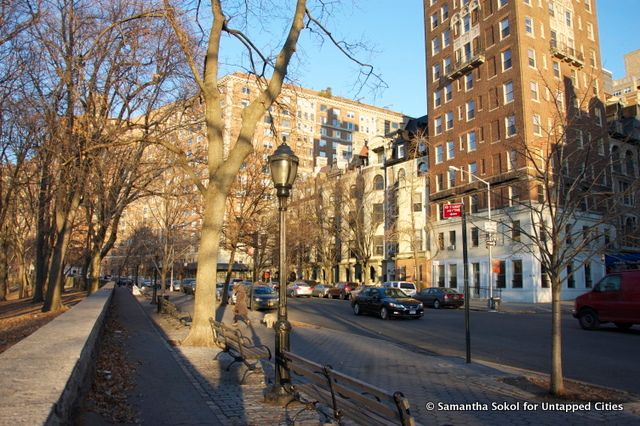
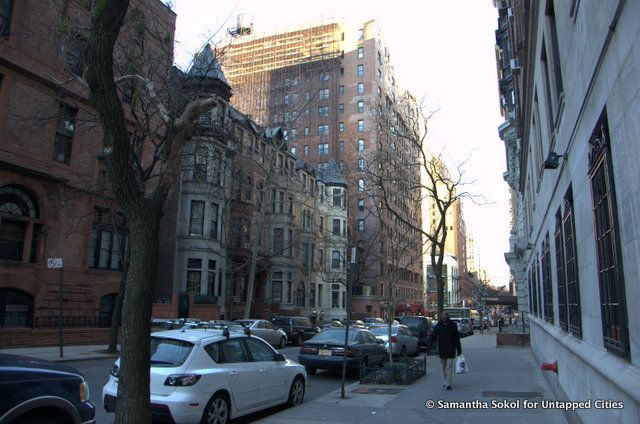
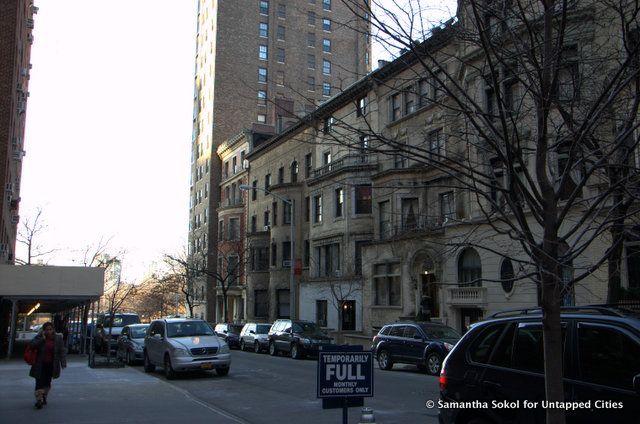
For more on the Upper West Side, check out film locations for You’ve Got Mail and our Top 10 guide to eating well on the Upper West.
Subscribe to our newsletter